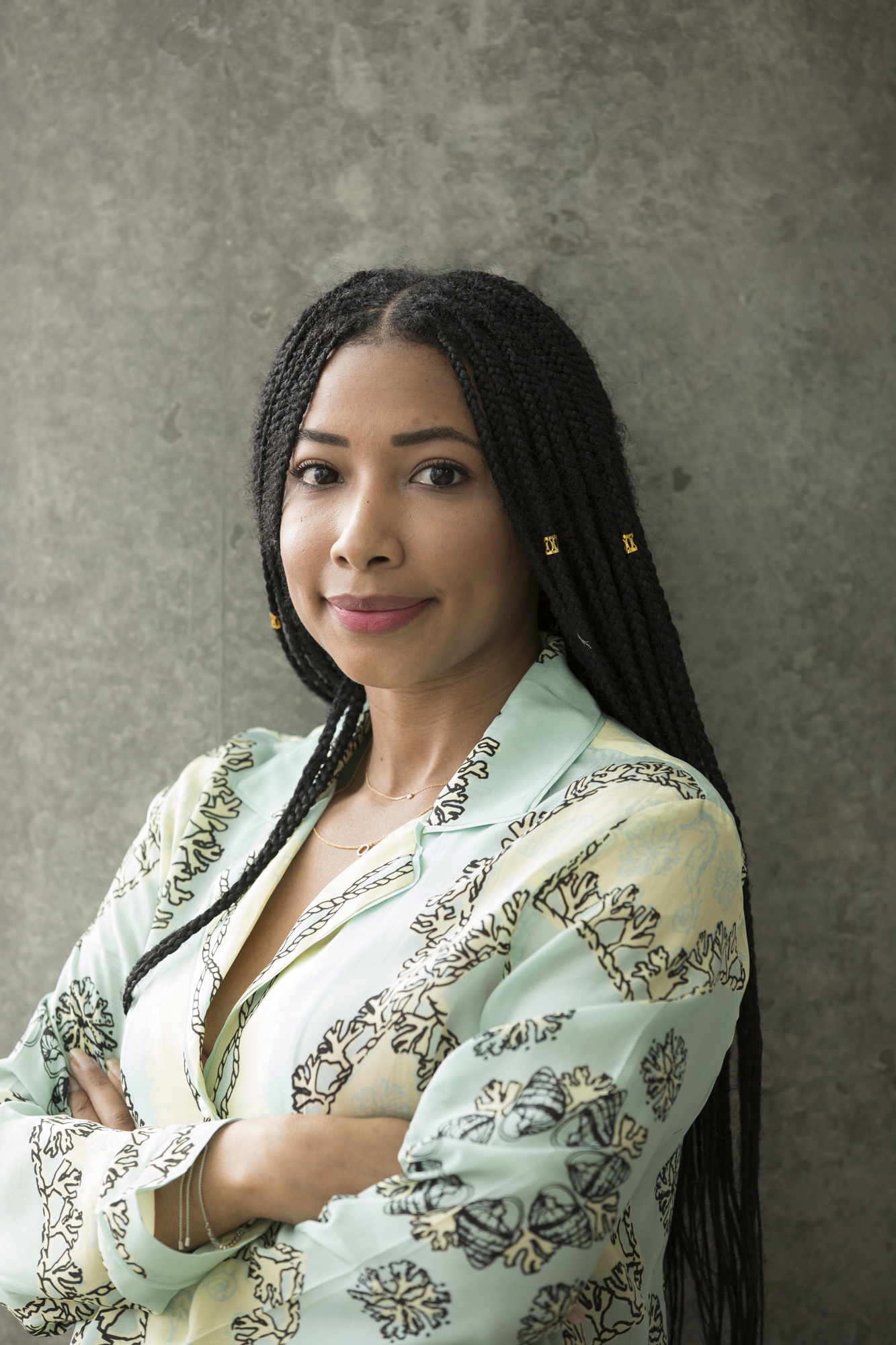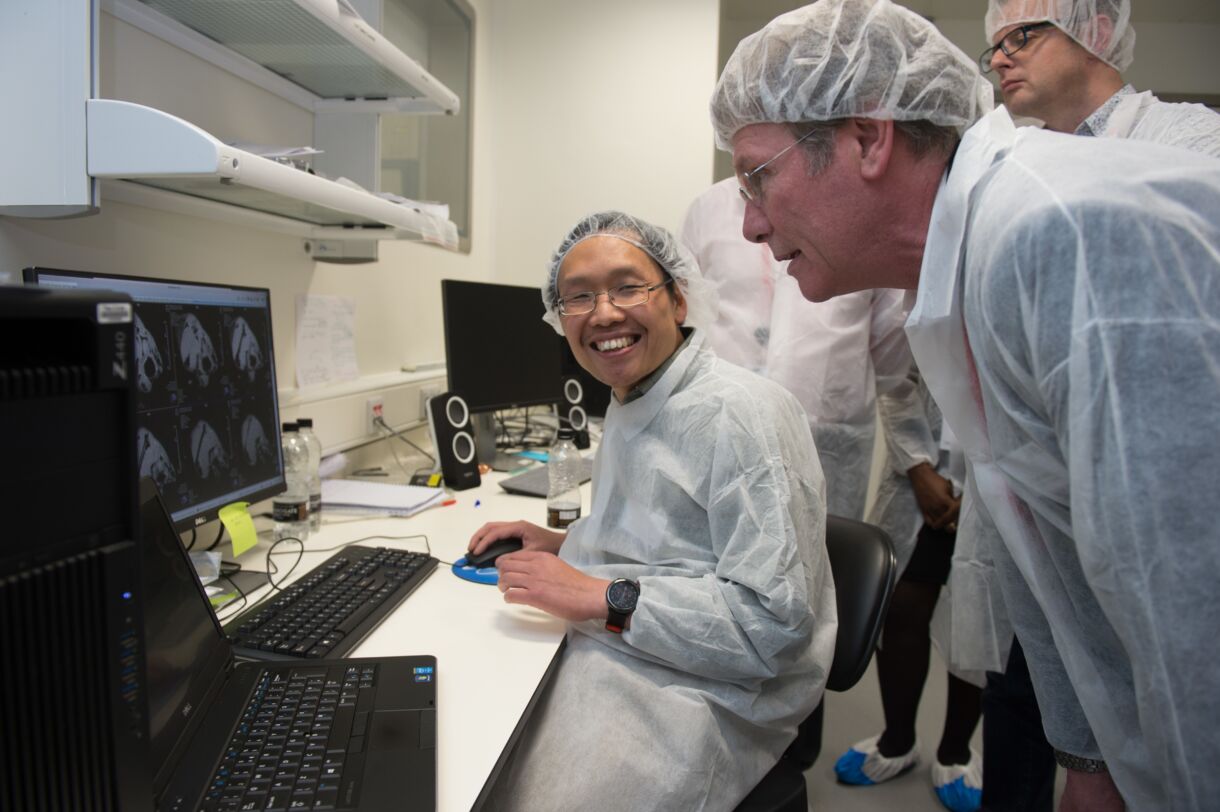
Building a community of inspired African scholars
Through our West African Scholars programme, we’ve enabled 21 promising West African students to complete either a bachelor’s degree or a master’s degree – or both – in subjects ranging from biochemistry and radiography, to biomedical sciences and global health management. Not only has the programme helped to nurture the careers of African scientists, but it has also empowered them to tackle some of Africa’s most pressing health challenges.
Over a period of nearly 15 years we’ve invested almost £2 million into the programme, with our alumni going on to secure PhDs and research fellowships, and even set up their own charities.
Now an investigator in the Human Genetics team at GlaxoSmithKline (GSK), Dr Neneh Sallah is well on the way to achieving her main ambition of leading a research group back home, in The Gambia. But it all started with her Foundation-funded BSc in Microbiology, which she completed at the University of Manchester, before going on to do a genomics PhD at the University of Cambridge.
Like all of our West African scholars, Neneh had the opportunity to work at the Medical Research Council (MRC) Unit The Gambia, and she has since contributed to a UN Inter-Agency taskforce for non-communicable diseases at the World Health Organization, and carried out genetic research at the London School of Hygiene and Tropical Medicine (LSHTM) and UCL’s Institute for Health Informatics.

“As a lab technician at the MRC Unit The Gambia, I was fascinated by the progress being made in genomics research overseas. We were generating vast amounts of valuable data, but we didn’t have the expertise to handle or make sense of it”, says Neneh.
Recognising this skills gap is what motivated Neneh to pursue a genomics PhD in Cambridge.
In her postdoctoral role at the LSHTM, Neneh combined genome sequencing, clinical information and bioinformatic approaches to investigate whether genetic differences explain why people respond so differently to infection.
She remains fascinated by the genomic diversity of African populations, and the implications this has for public health.
More recently, as a Senior Research Fellow at UCL, Neneh’s research focused on understanding the influence of our genetics and the environment on complex diseases in under-represented populations by leveraging large scale population, health care and genomics data.
African populations are known to have some of the highest levels of genetic variation in the world, yet only three per cent of genomic studies have been conducted in African populations. As a result, in Africa, the contribution of various genetic risk factors to a range of different diseases, is largely unknown. Dr Neneh Sallah
In her new role at GSK, Neneh is using similar techniques to guide clinical decisions around drug development and treatment for infectious and immune-related diseases. Neneh has also found the time to co-found an independent, non-profit organisation – Health and Science for The Gambia – which focuses on strengthening the academic, scientific research and health sector by organising lectures on a range of public health issues. Neneh is also a Director of OXCAMP Africa, a programme that mentors talented and disadvantaged African students, especially girls, to address gaps in education and gender inequality.
“The BSc degree not only deepened my understanding of infectious diseases, but it also opened my eyes to what I could achieve as a scientist, and provided the networks I needed to get where I am today. I’ve had the opportunity to work at some of the most prestigious and respected research institutions in the world, while carving out my own unique skills in data science.”
Neneh sees her future in The Gambia, where she wants to harness the power of data science to solve health problems in her own country, and across Africa. “I’m really excited about what the future holds. In Africa, we need to catch up with the global movement towards personalised medicine, and our work could contribute to a new era of precision medicine across the continent.”
The Foundation’s scholars programme undoubtedly laid the groundwork for my development as a researcher. Dr Neneh Sallah


